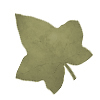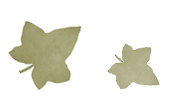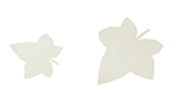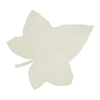


|
There are countless ways to use herbs - this article aims to introduce a number of preparations, with recipes and ideas to help you start making your own herbal preparations. For information on the herbs mentioned please click on the appropriate text links. Not all herbs are safe to use and any health conditions or prescription medication should be taken into consideration - please refer to the Health Issues article for more information. A quick word on utenstils : It is advisable to use only glass, enamel or stainless steel pots and pans / utensils. Avoid using plastic, wood and metals (other than stainless steel) as these can contaminate the preparations. INFUSIONS A water based infusion is one of the simplest ways to prepare herbs for a range of uses - and it's something we do everytime we make the common ol' cuppa. A single herb or combination of herbs can be used and the resulting infusion may be drunk hot or cold : Herbal
Cuppa Herb infused water preparations can be used in a number of ways - as a natural herbal bath infusion, skin rinse, hair rinse, mouthwash and gargle, herbal cleaning infusion, flea wash for cats and dogs, or as an ingredient in a more complex preparation. Herbal
Bathing Skin
Rinses Steams
and Inhalations Hair
Rinse Mouthwash
and Gargles Cat
& Dog Wash Herbal
Cleaning These are certainly not the only ways to make or use a herbal infusion and an infusion doesn't have to be water based - click here to discover the delights of Herbal Infused Oils. DECOCTIONS For tougher herbs, roots, bark, seeds and dried berries, more forceful treatment than a simple infusion is often required to extract the herbs medicinal constituents. Like an infusion, decoctions can be taken hot or cold. A standard quantity (to make 3 - 4 doses) is 20g dried or 40g fresh herbs to 750ml cold water, simmered to reduce to about 500ml. Crush, chop or bruise the herbs and place in a pan. Cover with cold water, bring to the boil and simmer for 15 - 30 minutes until the liquid is reduced by about a third. Strain into a clean jug, cover and store in a cool place until required - best used within 24 to 48 hours. Dandelion Root can be used to make a 'hangover detox decoction' - use about 15g of chopped root to 750ml water and make as above. Sip small quantities frequently throughout the day. Yellow Dock is a mild laxative - use 1 teaspoon to 1 cup of water. For flu with muscle aches and pains use 5g of Echinacea Root to 750ml water and drink 2 - 4 cups a day. Cramp Bark is useful for remedying joint, tendon and ligament inflammation, as well as back pain, or sleeplessness caused by backache. A decoction of Cramp Bark also makes a soothing external rub for tense neck and lumbar regions. COMPRESS A
compress is a cloth soaked in a water-based herbal
infusion, decoction or diluted tincture which can
be held against the skin to relieve swelling, bruising
and pain, or to soothe headaches and cool fevers.
Resoak or prepare a new compress when the compress
cools (if it was hot to begin with) or warms up
or dries out (if cold to begin with), POULTICE A
poultice is a mixture of fresh or dried herbs applied
directly to an affected area. Some poultices require
the herbs to be simmered first (for roughly 2 minutes)
- the excess liquid then squeezed out and the herbs
applied to the area, bandaging them in place for
up to 3 hours. To prevent the mixture from sticking
to the skin apply a little carrier oil (such as
olive oil or sweet almond) to the skin before applying
the poultice. TINCTURES Tinctures are created by soaking herbs in alcohol and result in a preparation which should last for 1 to 2 years, if stored correctly. Use 200g dried or 300g fresh to 1 litre alcohol (Vodka, Brandy or Rum). A regular dose is 5ml diluted in water or fruit juice, taken 2 to 3 times per day, Place the herbs in a clean glass jar, pour on alcohol ensuring all the herb is covered, put the lid on and shake. Leave in a cool dark place for a fortnight, shaking every other day or so. Strain and pour into clean glass bottles and store in a cool, dark place. Tincture of Hops is recommended by some herbalists as a remedy for insomnia. Use 10 drops to begin with, increasing to a maximum of 30 if required. Do not take if suffering from depression. Echinacea Tincture can be effective taken at the first sign of colds and 'flu - take 1/2 teaspoon with water 2 times a day. A teaspoon of Myrrh Tincture diluted in 5 teaspoons of warm water can be used as a gargle to remedy a sore throat. TONIC WINES Tonic Wines are very much like a tincture - herbs are used to fill a clean jar / vat, over which wine (or port) is poured so that the herb is completely covered and the level of the wine is above the top of the herbs. Close securely and leave to mature for at least 1 month. Regularly top up the jar to ensure the herbs remain covered, replacing with a new batch of herbs as required. Lasts for about 4 -5 months - but keep an eye on the mixture for any mould and discard remedy if any occurs. A quicker method is to add the herbs and wine / port to a saucepan (roughly 6 oz herbs to 2 pints liquid), cover with a lid and heat gently until the wine begins to simmer - do not allow the mixture to boil (unless you wish to eliminate the alcohol content - in which case leave uncovered and allow to boil for at least 5 minutes). Remove from the heat and leave covered for 24 hours. Strain and bottle. SYRUPS Syrups are made using equal proportions of herbal infusions / decoctions and honey or unrefined sugar. Herbal infusions / decoctions used in syrups need to be brewed or simmered for longer than normal. Place the infusion or decoction in a saucepan together with the honey or sugar and gently heat, stirring continuosuly until the honey / sugar has dissolved and the mixture has a syrupy consistency. Remove from the heat and leave to cool. Once cooled pour into sterilised glass bottle, use a cork as a stopper and store in a cool, dark place. The cork stopper is important - syrups are prone to ferment and may explode if kept in a screw-lid topped bottle. A regular dose for syrups is 5 - 10 ml (1 to 2 teaspoons) taken 3 times a day. Store for up to 6 months. JUICES Fresh leafy herb such as Cleavers, Lemon Balm, Borage, Fennel and Dandelion can be liquidised to produce nourishing herbal juices, which can also be blended with freshly juiced fruits and vegetables. Place the fresh herbs in a food processor or liquidiser and process until the mixture is thick green slurry. Take in 2 teaspoon / 10ml doses mixed with a little water or fuirt / vegetable juice if preferred, 3 times a day. Keep herb juices refrigerated and use within 48 hours. The preparations mentioned in this article are of course not the only ways to prepare and use herbs - and quite often the herb needs no special preparation other than perhaps drying and possibly a little grinding with a mortar and pestle. Culinary dishes the world over will offer up a rich history of herbal ingredients, and the world of herbal crafts is full of ideas, from a simple strewing herb to pot pourri, sleep pillows and herb poppets to pomanders and linen bags, powders and deodorants to incenses... the list is endless! I hope this article has helped identify a few herbal preparations and has sparked a herbal flame of curiousity and inspiration. Enjoy your herbs and the natural, healing remedies they offer us so freely. Related
Herb Articles : Disclaimer : This article is not intended to replace any professional medical advice you may have been given - nor is it intended to be in place of professional advice. Always check with a medical professional if you are taking prescription drugs, have a health condition, are pregnant, breast-feeding, trying to conceive or are generally unsure about a herb / oil / medicine. Always research before preparingor using a remedy! Respect the medicines Mother Nature offers us and live a healthy, happy life. |
|

Gaia's Garden Library
Non Fiction Section : Gaia's Garden Herblore | Susun S. Weed Articles | Articles and Musings
Fiction Section : Short Stories & Prose| As Told
By Cat | Public Domain Texts| Poetry
Shop | Library | Gallery | Forum | Contact | Links








